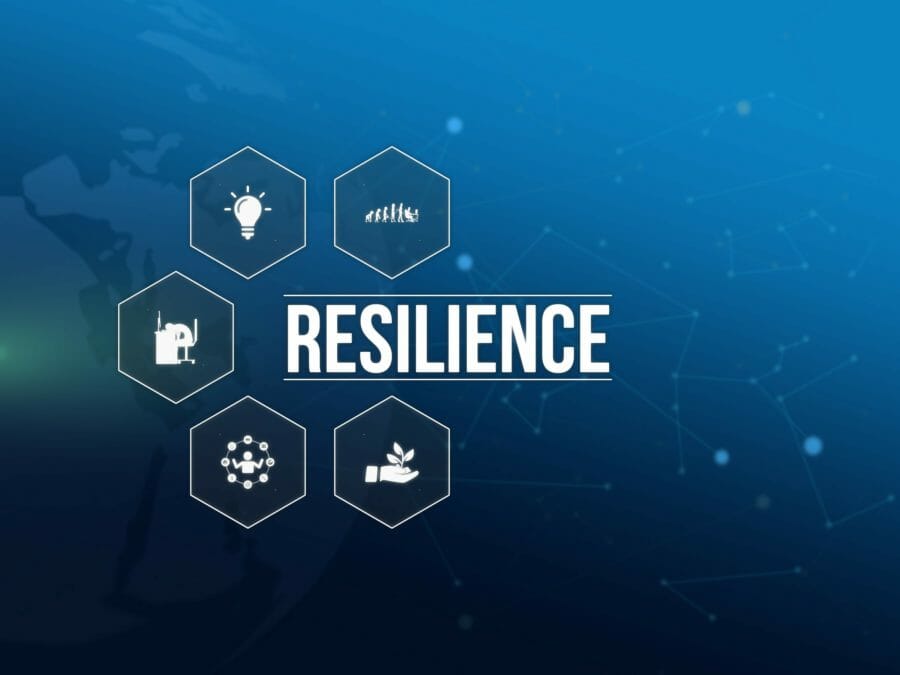Labelled ‘the world’s largest work-from-home experiment’, the Covid-19 pandemic forced millions of employees into remote working almost overnight. Inevitably, some organisations were better prepared than others for this shift, and able to demonstrate greater organisational resilience during uncertain times.
Gartner research prior to Covid-19 found that nearly 90% of senior business leaders believe digital transformation is key to success and a top priority. Despite this, only 40% had reached scale for their digital initiatives. With the pandemic acting as a stress test for businesses in every industry, it quickly became apparent that those organisations which had been slower to embark on their digital transformation journeys proved less resilient. So how can they turn things around?
Embrace digital
A surprisingly large proportion of organisations still rely too heavily on paper-based processes. In today’s digital world, this is setting them back. The companies that shifted to remote work overnight were able to do so because their processes enabled them to continue with business as usual – even from “afar”.
Beyond improving operational resilience, fully embracing a digital-first approach provides a number of benefits. These include reducing human error and information loss through the automation of core business processes; achieving greater efficiency when finding and sharing information; faster response times; improved customer experience, and even lowering environmental impact. Going digital is also key to enhancing information security and governance – a vital step given that malicious actors view Covid-19 and the shift to remote working as a new lure opportunity, and have been quick to adjust their tactics to take advantage of the pandemic.
How organisations can build cyber immunity through the use of AI
Shift to the cloud
Our research into the use of cloud-only, on-premises only and hybrid infrastructures for content storage, management and collaboration revealed that nearly two thirds (64%) of organisations with content exclusively on-premises believe they now face a competitive disadvantage. Digital technologies can help organisations to improve operations, yet they are rendered useless to remote workers if users need to be in a specific physical location to access them. By deploying cloud technologies, staff can securely access the information they require to collaborate and be productive – no matter their location.
Many organisations find the idea of wholesale cloud adoption intimidating, yet taking a hybrid approach can provide many of the same benefits, enabling businesses to modernise their infrastructure and transform in a way that best suits their needs. Whether hybrid or cloud-only, organisations should be looking to harness cloud technologies to achieve greater agility and keep vital channels of information accessible across organisational and geographical borders, providing the right levels of access anywhere and anytime.
Build digital collaboration into the business
Digital transformation initiatives do not automatically create operational resilience. In reality, they must be built into the business to create this outcome. To ensure success, business leaders must consider the following three objectives when implementing a digital collaboration strategy:
- Connect people. Remote work has allowed many businesses to continue operating, yet it can also have negative implications for employees’ wellbeing. To counteract this and protect staff, business leaders will need to focus on maintaining a strong corporate culture and prioritising employee engagement. Collaboration technologies can enable this, but only if used appropriately.
- Simplify information access. Consolidating and updating information is key to achieving greater productivity during a crisis. Fast and efficient collaboration is essential, yet too many professionals end up wasting valuable time searching for information. According to our research, a third (31%) of UK workers typically spend at least one minute – and often more – looking for a specific file or piece of information.
- Information governance automation. By automating governance policies, such as document retention and archiving, businesses can ensure compliance with regulation while removing unnecessary workloads from remote staff.
Management strategies must adapt to remote working — VMware
Prioritise cyber resilience
Data stored on desktops, laptops, and tablets is vulnerable to ransomware, hardware failures, human error, loss, and theft – all risks that have been amplified by the mass shift to remote work and reduced IT admin oversight over dispersed employees. As a result, creating a culture of cyber resilience is more important than ever.
Cyber resilience is the ability to continuously deliver intended operational outcomes, despite any barriers thrown up by adverse cyber events. It requires total network, endpoint, and user protection, as well as data recovery, as part of a robust ‘defence-in-depth’ strategy. However, it mustn’t stop there. Conducting regular training sessions to ensure employees are aware of cyber risks is a critical component of cyber resilience. Ultimately, these steps will enable organisations to continue operations without the disruption of files and servers being locked due to a cyber attack.
Achieving organisational resilience
The Covid-19 crisis has accelerated digital transformation – simultaneously creating opportunities to build more organisational resilience. Yet whether a business had kick-started their digital transformation journey pre-Covid or not, it is never an overnight implementation. Instead, this collective journey takes time, and requires widespread organisational support if it is to be a success, from C-suite leadership to end users embracing training and new processes.
Resilient companies can adapt to change in systemic ways, ensuring they are prepared and able to avoid being disrupted when the next big change inevitably hits. They have the tools and processes needed to be disruptors, innovating and succeeding where their competitors cannot. No matter what the future holds – from a prolonged second wave to more local lockdowns – organisations that have embraced digital will be better positioned to not only face adversity but come through it even stronger than before.








